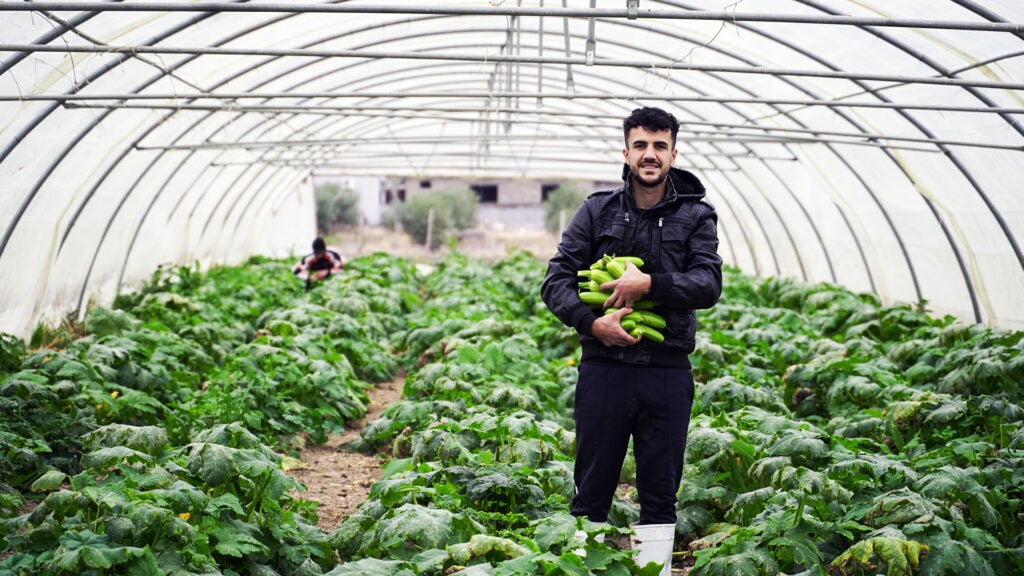In consortium with Delphy and Al-Ghad, and in partnership with UNDP, Cordaid has kicked off a sustainable livelihoods project in Hawija, Iraq. Business training and grants will allow hundreds of farmers and agribusiness owners, among them many women and youth, to sustainably improve their livelihoods.

Hawija city and the district of Hawija have a complex socio-political history with many inter-communal violent conflicts, with the most recent one being the ISIS occupation (2014-2017).
“The war shattered peoples’ livelihoods and left them alone with their unprocessed traumas. Sustainable economic development and psychosocial support are vital.”
Prior to the ISIS invasion, Hawija was one of the largest agricultural centres in Iraq, with the most significant cotton production and the second largest production of fruits, vegetables, wheat, barley, and corn in the country.
The majority of people in Hawija depend on agriculture. And with the proximity of the Little Zab River and two main water stations, the Hawija district was and still is well suited for agricultural production.
Still recovering from war
However, during the war against ISIS, Hawija’s people and its infrastructure suffered tremendously.
“People find it extremely difficult to rebuild their lives. The war shattered their livelihoods and they are left alone with their unprocessed traumas. Integrated programming promoting both sustainable economic development and psychosocial support is vital”, says Daphne van Dam, Cordaid’s private sector development programme manager in Iraq.
Business training and grants
In a consortium of Dutch and local partners specialized in agri-ecosystem development in fragile and (post-)conflict settings, this project supports the people of Hawija in rebuilding their livelihoods.
In a period of six months, it will support 250 farmers, of which 100 are women and 60% are youth, through capacity building, as well as business and field training. After this, 95 farmers will be given a grant to upgrade their irrigation systems and follow-up coaching to put learnings into practice.
75 employees of agri-businesses (at least 30 women, and 30 youth) will also participate in business management skills development training. 35 business owners will receive grants to invest in their business, as well as personal coaching.
To raise awareness and engage actors of the agri-ecosystem, we organize market linkage events and interactive learning workshops designed to make food systems more sustainable.
The project is implemented by UNDP, in partnership with Cordaid, Al-Ghad and Delphy with funding from the German Federal Ministry for Economic Cooperation and Development (BMZ). Apart from this funding, Cordaid has also allocated funding of its own. This allows for an additional number of 45 farmers and six SMEs to receive grants.
Mental health and psycho-social support
Funding for Mental Health and Psychosocial Support Services has also been made available, as most if not all of the participants have experienced hardship and endured traumas.
These experiences deeply affect people’s private and professional lives. This is why, throughout the project period, a psychologist, two social workers, and a protection officer are available for all participants. They will be safeguarding the gender and trauma sensitivity of project activities and focus on the mental health and physical safety of all participants. If needed, the psychologist will be in a position to refer participants to more specialised mental health services.
Community driven
In all activities, Cordaid closely collaborates with community committees. They continuously have an advisory role in all activities. Through them, the voice of the community is at the centre of the project.